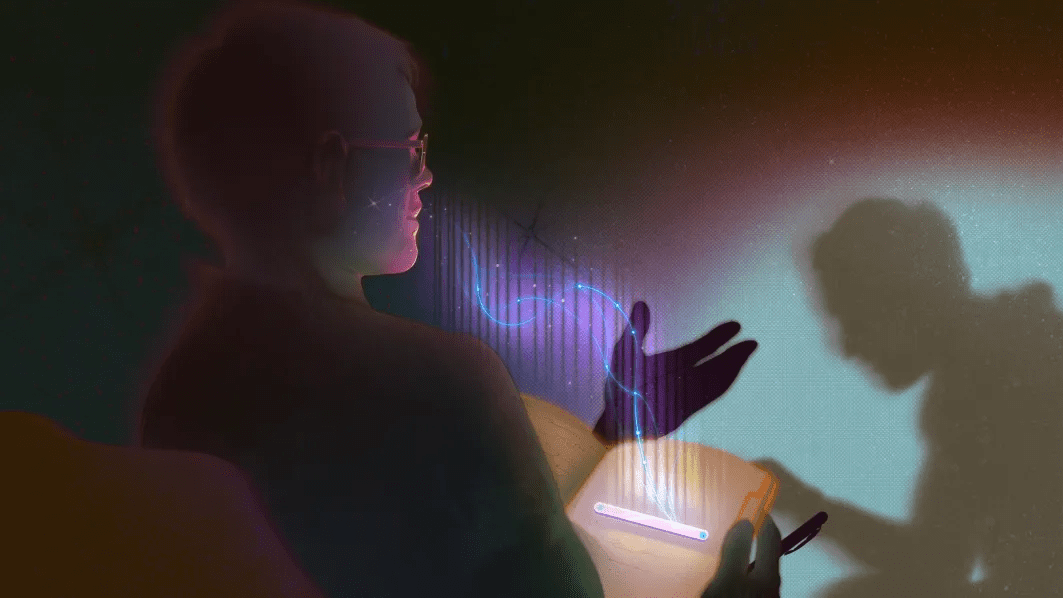The Download: AI-enhanced cybercrime, and secure AI assistants
This is today’s edition of The Download, our weekday newsletter that provides a daily dose of what’s going on in the world of technology.
AI is already making online crimes easier. It could get much worse.
Just as software engineers are using artificial intelligence to help write code and check for bugs, hackers are using these tools to reduce the time and effort required to orchestrate an attack, lowering the barriers for less experienced attackers to try something out.
Some in Silicon Valley warn that AI is on the brink of being able to carry out fully automated attacks. But most security researchers instead argue that we should be paying closer attention to the much more immediate risks posed by AI, which is already speeding up and increasing the volume of scams.
Criminals are increasingly exploiting the latest deepfake technologies to impersonate people and swindle victims out of vast sums of money. And we need to be ready for what comes next. Read the full story.
—Rhiannon Williams
This story is from the next print issue of MIT Technology Review magazine, which is all about crime. If you haven’t already, subscribe now to receive future issues once they land.
Is a secure AI assistant possible?
AI agents are a risky business. Even when stuck inside the chatbox window, LLMs will make mistakes and behave badly. Once they have tools that they can use to interact with the outside world, such as web browsers and email addresses, the consequences of those mistakes become far more serious.
Viral AI agent project OpenClaw, which has made headlines across the world in recent weeks, harnesses existing LLMs to let users create their own bespoke assistants. For some users, this means handing over reams of personal data, from years of emails to the contents of their hard drive. That has security experts thoroughly freaked out.
In response to these concerns, its creator warned that nontechnical people should not use the software. But there’s a clear appetite for what OpenClaw is offering, and any AI companies hoping to get in on the personal assistant business will need to figure out how to build a system that will keep users’ data safe and secure. To do so, they’ll need to borrow approaches from the cutting edge of agent security research. Read the full story.
—Grace Huckins
What’s next for Chinese open-source AI
The past year has marked a turning point for Chinese AI. Since DeepSeek released its R1 reasoning model in January 2025, Chinese companies have repeatedly delivered AI models that match the performance of leading Western models at a fraction of the cost.
These models differ in a crucial way from most US models like ChatGPT or Claude, which you pay to access and can’t inspect. The Chinese companies publish their models’ weights—numerical values that get set when a model is trained—so anyone can download, run, study, and modify them.
If open-source AI models keep getting better, they will not just offer the cheapest options for people who want access to frontier AI capabilities; they will change where innovation happens and who sets the standards. Here’s what may come next.
—Caiwei Chen
This is part of our What’s Next series, which looks across industries, trends, and technologies to give you a first look at the future. You can read the rest of them here.
Why EVs are gaining ground in Africa
EVs are getting cheaper and more common all over the world. But the technology still faces major challenges in some markets, including many countries in Africa.
Some regions across the continent still have limited grid and charging infrastructure, and those that do have widespread electricity access sometimes face reliability issues—a problem for EV owners, who require a stable electricity source to charge up and get around. But there are some signs of progress. Read the full story.
—Casey Crownhart
This article is from The Spark, MIT Technology Review’s weekly climate newsletter. To receive it in your inbox every Wednesday, sign up here.
The must-reads
I’ve combed the internet to find you today’s most fun/important/scary/fascinating stories about technology.
1 Instagram’s head has denied that social media is “clinically addictive”
Adam Mosseri disputed allegations the platform prioritized profits over protecting its younger users’ mental health. (NYT $)
+ Meta researchers’ correspondence seems to suggest otherwise. (The Guardian)
2 The Pentagon is pushing AI companies to drop tools’ restrictions
In a bid to make AI models available on classified networks. (Reuters)
+ The Pentagon has gutted the team that tests AI and weapons systems. (MIT Technology Review)
3 The FTC has warned Apple News not to stifle conservative content
It has accused the company’s news arm of promoting what it calls “leftist outlets.” (FT $)
4 Anthropic has pledged to minimize the impact of its data centers
By covering electricity price increases and the cost of grid infrastructure upgrades. (NBC News)
+ We did the math on AI’s energy footprint. Here’s the story you haven’t heard. (MIT Technology Review)
5 Online harassers are posting Grok-generated nude images on OnlyFans
Kylie Brewer, a feminism-focused content creator, says the latest online campaign against her feels like an escalation. (404 Media)
+ Inside the marketplace powering bespoke AI deepfakes of real women. (MIT Technology Review)
6 Venture capitalists are hedging their AI bets
They’re breaking a cardinal rule by investing in both OpenAI and rival Anthropic. (Bloomberg $)
+ OpenAI has set itself some seriously lofty revenue goals. (NYT $)
+ AI giants are notoriously inconsistent when reporting deprecation expenses. (WSJ $)
7 We’re learning more about the links between weight loss drugs and addiction
Some patients report lowered urges for drugs and alcohol. But can it last? (New Yorker $)
+ What we still don’t know about weight-loss drugs. (MIT Technology Review)
8 Meta has patented an AI that keeps the accounts of dead users active
But it claims to have “no plans to move forward” with it. (Insider $)
+ Deepfakes of your dead loved ones are a booming Chinese business. (MIT Technology Review)
9 Slime mold is cleverer than you may think
A certain type appears able to learn, remember and make decisions. (Knowable Magazine)
+ And that’s not all—this startup thinks it can help us design better cities, too. (MIT Technology Review)
10 Meditation can actually alter your brain activity 
According to a new study conducted on Buddhist monks. (Wired $)
Quote of the day
“I still try to believe that the good that I’m doing is greater than the horrors that are a part of this. But there’s a limit to what we can put up with. And I’ve hit my limit.”
—An anonymous Microsoft worker explains why they’re growing increasingly frustrated with their employer’s links to ICE, the Verge reports.
One more thing



Motor neuron diseases took their voices. AI is bringing them back.
Jules Rodriguez lost his voice in October 2024. His speech had been deteriorating since a diagnosis of amyotrophic lateral sclerosis (ALS) in 2020, but a tracheostomy to help him breathe dealt the final blow.
Rodriguez and his wife, Maria Fernandez, who live in Miami, thought they would never hear his voice again. Then they re-created it using AI. After feeding old recordings of Rodriguez’s voice into a tool trained on voices from film, television, radio, and podcasts, the couple were able to generate a voice clone—a way for Jules to communicate in his “old voice.”
Rodriguez is one of over a thousand people with speech difficulties who have cloned their voices using free software from ElevenLabs. The AI voice clones aren’t perfect. But they represent a vast improvement on previous communication technologies and are already improving the lives of people with motor neuron diseases. Read the full story.
—Jessica Hamzelou
We can still have nice things
A place for comfort, fun and distraction to brighten up your day. (Got any ideas? Drop me a line or skeet ’em at me.)
+ We all know how the age of the dinosaurs ended. But how did it begin?
+ There’s only one Miss Piggy—and her fashion looks through the ages are iconic.
+ Australia’s hospital for injured and orphaned flying foxes is unbearably cute.
+ 81-year old Juan López is a fitness inspiration to us all.















